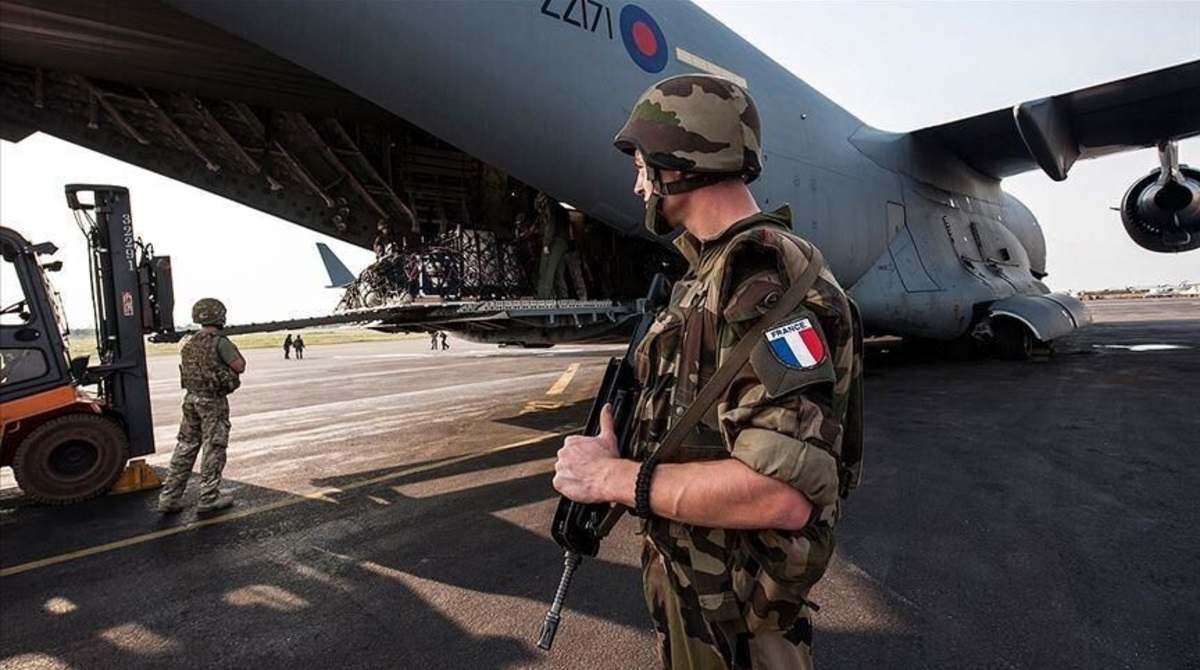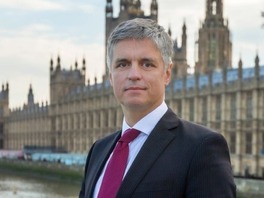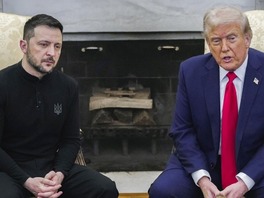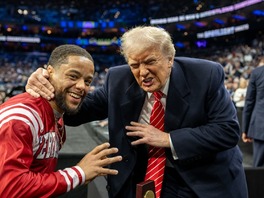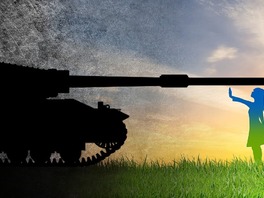The prohibition on NATO military personnel participating in the war between Russia and Ukraine, or within Ukraine itself, was one of the Kremlin's prominent "red lines" for the collective West. However, Europe now appears to be seriously considering ignoring Russian warnings. France is the loudest advocate of this stance, while the US and Germany act more cautiously, which may seem somewhat indecisive. Nonetheless, Paris cannot act unilaterally to avoid undermining the consolidated position of the US and EU in discussing methods to counter Russian aggression against Ukraine. One example of such a consolidated decision might be the creation of a European coalition of military instructors for the Ukrainian Armed Forces. For more details, read the Apostrophe article.
Coordinated with other NATO countries?
French President Emmanuel Macron intends to form a coalition of European military instructors to train Ukrainian servicemen.
According to recent reports by Le Monde, the final decision has not yet been made, but the deployment of French and other European instructors to Ukraine could occur within weeks or even days.
The French government aims to assemble a coalition of countries to train Ukrainian military personnel. According to Le Monde sources, consultations on this matter are expected to accelerate in the coming days, allowing an announcement to be made during Ukrainian President Volodymyr Zelensky's visit to France for the 80th anniversary of the Normandy landings on June 6-7.
Experts insist that this information may indicate something more significant than just Paris's initiative to form the coalition of foreign instructors for the Ukrainian Armed Forces.
President Macron could only announce the intention to deploy Western troops to Ukraine after consulting with NATO partners. The specific roles—military instructors, border security, and other support functions not involving direct combat—are secondary details, noted military analyst Dmytro Sniehyriоv in a comment to Apostrophe.
‘Therefore, when the French President initially publicly mentions the option of sending troops to Ukraine, and a few weeks later European media report that Paris intends to form a European coalition of instructors to train Ukrainian military personnel, it means that the coalition issue has either already been discussed with other NATO countries or is currently under discussion,’ Sniehyriov said.
If such plans are made public, Macron effectively outlines the sentiments of the entire Alliance. Previously, the deployment of NATO troops to Ukraine was a 'red line' drawn by Moscow, but Macron's publicly stated position should be understood to mean that Kremlin 'lines' hold no sway over NATO. What matters are the specific decisions and the potential price to be paid if these decisions are implemented, the expert added.
Not a political move
According to Reuters, France's official announcement regarding the deployment of military instructors to Ukraine may occur during Ukrainian President Volodymyr Zelensky's visit to the country.
Anonymous diplomatic sources indicate that Paris aims to organize and lead a coalition of countries willing to support Kyiv in military aspects, despite concerns from some of its partners about the potential for direct confrontation with Russia.
Diplomats speaking to Reuters correspondents noted that France will initially send a small group to assess mission capabilities, followed by possibly several hundred instructors. Training will primarily focus on demining, maintenance of military equipment, and technical aspects of military aviation.
Additionally, Paris plans to finance, arm, and train a Ukrainian motorized brigade.
At first glance, Paris's initiatives may seem primarily political, as Ukrainian forces can, for objective reasons, train Western counterparts on how to fight Russians. However, such conclusions in practice may prove superficial.
As noted by Mykola Sunhurivskyi, the head of military programs at the Razumkov Center, in a comment to Apostrophe, logistical and organizational aspects are of paramount importance in this situation. Firstly, it is impossible to extract a larger number of Ukrainian sergeants and officers from the combat zone to send them to training centers as instructors for Ukrainian recruits.
‘The coalition proposed by Paris is highly relevant because sending NATO instructors to us will increase the capacity of training centers, teach soldiers to use Western weaponry, and instruct them in battle tactics. This ensures our soldiers don't learn these skills directly on the front lines with Russians. Moreover, sending instructors to Ukraine is a more convenient logistics-wise than sending our troops for training in NATO countries,’ Sunhurivskyi explains.
Since the onset of Russia's open aggression, only a small portion of Ukrainian troops (around 15%) have received training abroad, which has been insufficient for the needs of the Ukrainian Armed Forces. Similarly, the training center system inherited from the Soviet era, largely suitable for peacetime conditions, is now struggling to cope with the influx of mobilized personnel due to various reasons.
‘Sending Western instructors to Ukraine is an extremely rational decision. We cannot afford to engage in a war of attrition because Russia simply has more manpower and resources. However, fighting with Western weapons using Soviet tactics is also not feasible. Translating Western training materials and technical documentation into Ukrainian is not enough. We need experienced specialists who will train our soldiers here in Ukraine in the tactics of using Western weaponry, which are based on maneuvering, identifying weaknesses in the enemy forces, and delivering combined strikes against them,’ Captain Andriy Ryzhenko, former Deputy Chief of Staff of the Ukrainian Navy noted in a comment to Apostrophe.
Limited participation
At the end of May, French President Emmanuel Macron announced that he would soon officially present a plan for the possible deployment of French military instructors in Ukraine. Subsequently, Chief of the General Staff of the Armed Forces of Ukraine, Oleksandr Syrskyi, on May 27, announced after talks with French Defense Minister Sébastien Le Cornu, that France was ready to send instructors to Ukraine to train Ukrainian military personnel. However, the Ukrainian Ministry of Defense clarified that discussions on this matter are ongoing, and Ukraine is currently preparing the necessary documents to avoid delays associated with bureaucratic procedures once a final decision is made.
‘Macron's stance regarding the deployment of French troops to the Odesa region is based on the idea that it's not up to the Kremlin to dictate NATO's "allowed" boundaries but rather the NATO countries themselves to draw "red lines" before Moscow. One of these lines is that NATO, both politically and in reality, won't allow Ukraine to collapse, preventing the war from spilling over into EU territory. Here, France's position shouldn't be opposed to that of Germany. Paris and Berlin simply employ different tactics, but the goal remains the same: strengthening Ukraine's defense capabilities to safeguard Europe itself,’ political scientist and international relations analyst Volodymyr Volya noted in a comment to Apostrophe.
From a military standpoint, the introduction of a NATO coalition of military instructors into Ukraine can also be seen as "limited participation," but with significant political signals to the Kremlin that NATO will not allow the collapse of the Ukrainian front and, consequently, the loss of Ukrainian sovereignty. Along with permissions to strike Russian territory with Western weapons, the presence of instructors from NATO member countries sends a clear message to the Kremlin: despite Russia's attempts at informational and political subversion, the West is bolstering its support for Ukraine.

